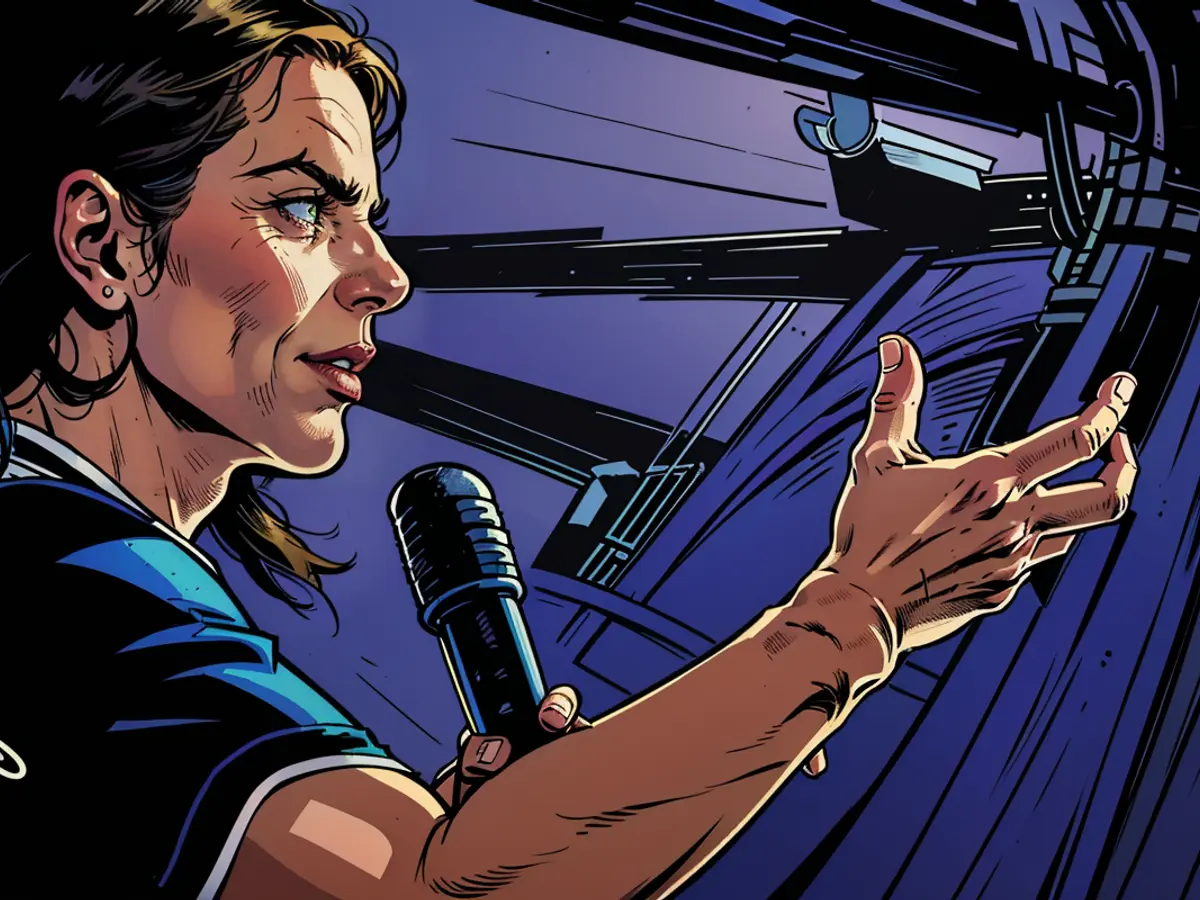- Germany's 'highly sensitive dilemma' in the prisoner deal
After a comprehensive prisoner exchange between Western states and Russia, the German government is seeking understanding for its difficult decision. It is not foreseeable whether the agreement with Moscow could help reduce tensions or even end the Ukraine war.
Foreign Minister Annalena Baerbock described the prisoner exchange between Russia, Belarus, and several Western states as a "highly sensitive dilemma." She hinted at intense wrangling within the government. "No one in the federal government made this decision lightly," said the Green politician in a radio interview with BR24. Interior Minister Nancy Faeser stressed: "This was a very, very difficult decision. It was a balancing act of various goods. From our perspective, the good of freedom and the lives of the prisoners - in Russia, in Belarus - was decisive, that these 15 people could get a life in freedom." On the other hand, there was the release of a convicted murderer. Meant is: the "Tiergarten murderer" Wadim Krassikow.
Why Germany struggled in the case of Krassikow
This man was released on Thursday as part of the prisoner exchange. Under strict security measures, he was flown from Karlsruhe to Ankara. The Berlin Regional Court had sentenced the man in 2021 to life imprisonment for murder. According to the verdict, the Russian, on August 23, 2019, in Berlin, on the orders of state Russian authorities, cunningly shot a Georgian of Chechen origin who had sought refuge in Germany. In return, Russia, among others, released prominent opposition figures such as Vladimir Kara-Mursa.
"The released opposition figures can continue their important struggle against Putin's brutal regime," said FDP General Secretary Bijan Djir-Sarai. This exchange of criminals for journalists once again shows, "that Putin's Russia is on the wrong side of history."
Defense Minister Boris Pistorius (SPD) evaluates the extensive prisoner exchange with Russia as a negotiating success and calls for realism. "One cannot do one thing without accepting the other. That was also the case here," he said on the sidelines of a visit to South Korea. "I find that the Chancellery has negotiated excellently here, that good results have been achieved together with others, which of course can be disputed in their effect, because it is completely clear: one's sorrow is another's joy in this case." He is particularly pleased that "people who were unjustly imprisoned in Russian prisons could be freed." The pictures from Moscow and the reception for the released ones could not surprise anyone who properly assesses (Russian President Vladimir) Putin.
Krassikow - "rewarded for his silence"?
The Kremlin confirmed for the first time directly that Krassikow is an agent of the Russian domestic intelligence service FSB.
On Thursday, a total of ten individuals were flown to Russia. Three former prisoners in Russia arrived in the USA: "Wall Street Journal" correspondent Evan Gershkovich, former soldier Paul Whelan, and journalist Alsu Kurmasheva were welcomed by US President Joe Biden and Vice President Kamala Harris shortly before midnight and embraced by their families amidst cheers and tears of joy.
Thirteen former prisoners were brought to Germany. Chancellor Olaf Scholz (SPD) received the released prisoners at Cologne/Bonn Airport. The prisoner exchange had been prepared by negotiators from Germany and the USA for months.
It was carried out with the support of the Turkish intelligence agency MIT at the airport in Ankara. Before the released prisoners were allowed to board the respective waiting aircraft, their identity was first verified.
The German citizens who were released include Rico K., who was sentenced to death in Belarus, and four men who were held in Russia - Patrick S., 19-year-old German-Russian Kevin L., and political scientist Demuri W., as well as activist German M., who was charged with treason.
German considerations for months
In the case of the "Tiergarten murderer," it was about a man who was sentenced to life imprisonment for murder. The Berlin Regional Court ruled in 2021 - in such a case, a release from prison is normally almost impossible even after 15 years due to the particular severity of the crime.
Kiesewetter also admits that the federal government found itself in a dilemma with its decision. Chancellor Scholz had already spoken to the leader of the Union parliamentary group, Friedrich Merz (CDU), about the planned exchange some weeks ago.
US President Biden said that the prisoner exchange was a "hard nut to crack" for the USA's allies. Particularly Germany and Slovenia had to make decisions that were "against their immediate interests." When asked what his message to Russian President Vladimir Putin was, he simply replied: "Stop."
Russia's war in Ukraine independent of prisoner deal
According to assessments from government circles in Berlin and Washington, the prisoner exchange does not have a direct influence on the situation in Ukraine, which was attacked by Russia. The National Security Advisor of the USA, Jake Sullivan, said in Washington that, in his view, these issues run on separate tracks. He explained that one issue is about the practical questions of the exchange, while the other is a much more complex question in which the Ukrainians will take the lead.
The United States government expressed gratitude towards Germany for its role in facilitating the release of three prisoners, including journalist Alsu Kurmasheva and former soldier Paul Whelan, during the prisoner exchange. The United States of America welcomed these individuals at the White House, highlighting the significance of their release.








